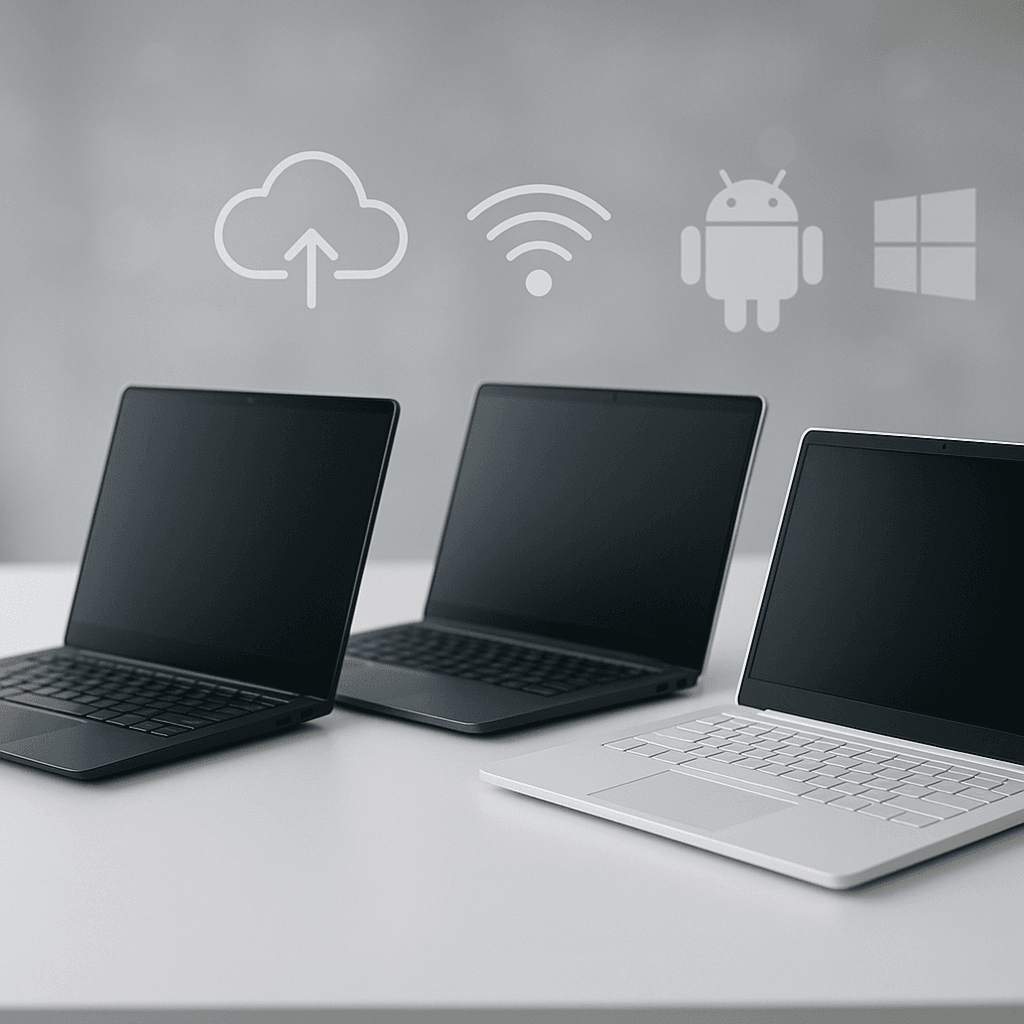The laptop landscape is shifting as Google signals a potential ChromeOS-Android merger while premium Chromebooks like the $750 Lenovo Plus 14 challenge Windows laptops in the mid-tier market. With budget Windows machines still struggling under $500, Chromebooks are redefining what cheap computing can deliver.
The computing world is witnessing a fascinating shift as Google quietly revolutionizes what we expect from budget laptops. After 15 years of being dismissed as glorified web browsers, Chromebooks are finally proving they can compete beyond the student market.
The transformation started with Google's Chromebook Plus certification program, which forced manufacturers to meet higher hardware standards. These machines now require Intel Core i3 or AMD Ryzen 3 processors, 8GB of RAM, 128GB storage, and 1080p displays - specs that would have cost $800+ in Windows laptops just two years ago.
But it's the Lenovo Chromebook Plus 14 that's really turning heads. At $750, this machine packs a vibrant OLED display, 16GB of RAM, and 256GB of storage - hardware that rivals the Dell 14 Plus while costing $200 less. "This is the best Chromebook ever made," according to WIRED's review, highlighting how the platform has evolved beyond its budget origins.
The real battleground remains under $500, where Windows laptops consistently disappoint. These machines typically arrive bloated with unnecessary software, sporting thick designs and poor battery life that make them unsuitable even for students. Meanwhile, Chromebooks like the Asus CX14 and CX15 deliver respectable performance at $300 or less.
This performance gap exists because ChromeOS remains fundamentally lightweight - it's still essentially a Chrome browser with a file system. That simplicity means less powerful hardware can deliver smooth experiences, while Windows machines need more resources just to run the operating system.
The software limitations that once held Chromebooks back are becoming less relevant. Most computing happens in web browsers anyway, from Google Workspace to advanced photo editing tools. The main restriction - inability to download traditional desktop applications - only matters for specialized software like video editing suites or industry-specific tools.
Microsoft is fighting back with Snapdragon X-powered Windows laptops that deliver MacBook-level battery life. The frequently sells for $650 with 16GB RAM and 512GB storage, offering compelling Windows performance at Chromebook Plus pricing.











